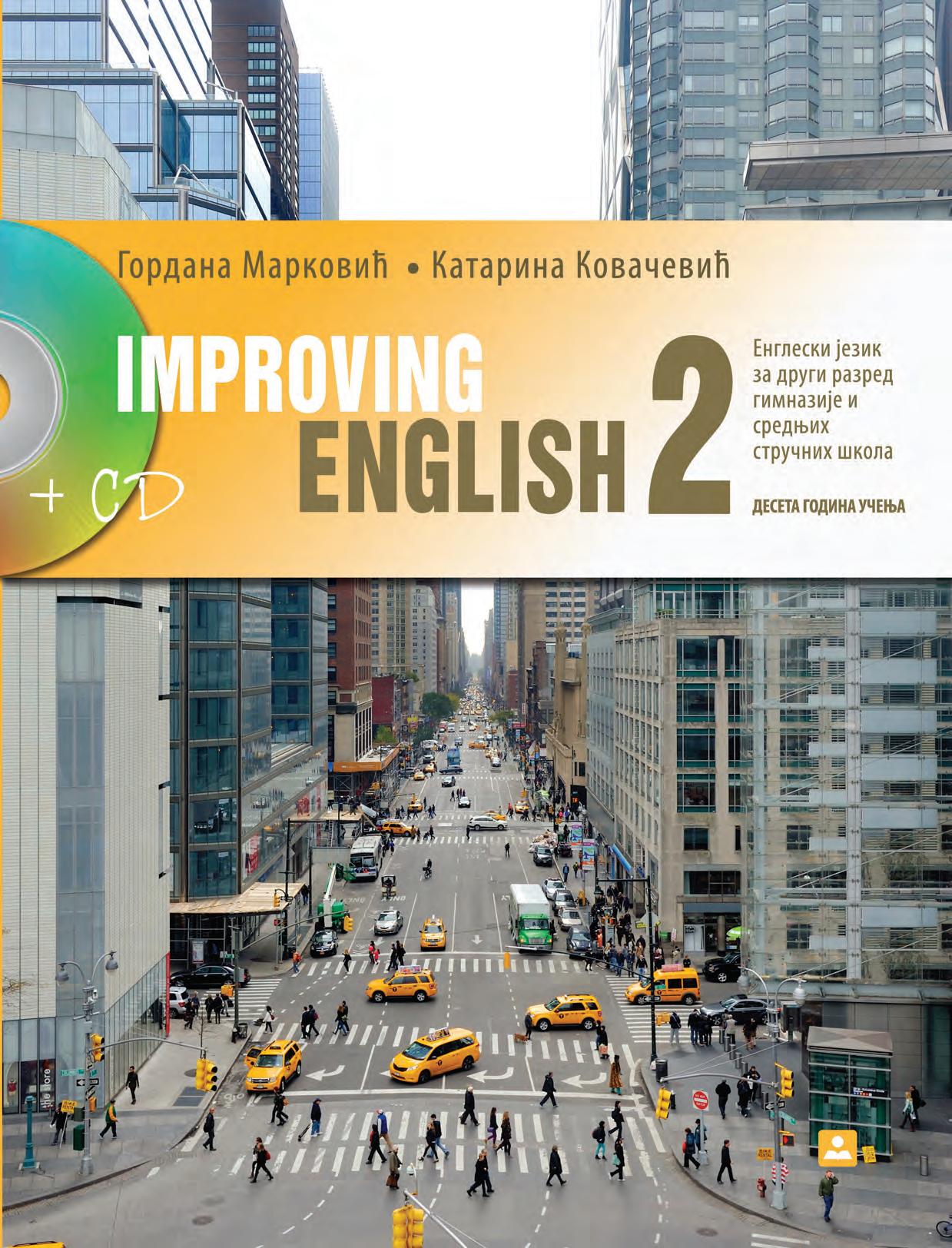














ГОРДАНА МАРКОВИЋ КАТАРИНА КОВАЧЕВИЋ Енглески језик за други разред гимназије и средњих стручних школа ДЕСЕТА ГОДИНА УЧЕЊА IMPROVING
ENGLISH 2
Рецензенти
др Борис Хлебец, редовни професор Филолошког факултета у Београду мр Душица Блажић, координатор за енглески језик Друштва за стране језике и књижевности Србије
Ивана Брковић, професор у Првој београдској гимназији у Београду
Лектор за енглески језик
Jonathan Pendlebury, лектор на Филолошком факултету у Београду
Уредник Слободанка Ружичић
Одговорни уредник др Татјана Костић
Главни уредник др Милорад Марјановић
За издавача др Милорад Марјановић, в. д. директора
Министар просвете, науке и технолошког развоја
Републике Србије, решењем број 650-02-444/2019-03 0д 4. фебруара 2020. године, одобрио је овај уџбеник са тонским записом за издавање и употребу у 2. разреду гимназије и средњих стручних школа.
CIP - Каталогизација у публикацији
Народна библиотека Србије, Београд 37.016:811.111(075.3)
МАРКОВИЋ, Гордана, 1951Improving English 2 : енглески језик за други разред гимназије и средњих стручних школа : десета година учења / Гордана Марковић, Катарина Ковачевић ; [илустрације Драгутин Вукелић]. - 3., прерађено изд . - Београд : Завод за уџбенике, 2020 (Београд : АМД систем). - 151 стр. : илустр. ; 27 cm + 1 аудио диск (CD-ROM; 12 cm)
Тираж 5.000. - List of Irregular Verbs: str. 147-148.World List: str. 149-151.


ISBN 978-86-17-20312-0
1. Ковачевић, Катарина, 1942- [аутор]
COBISS.SR-ID 13511177
ISBN 978-86-17-20312-0
© ЗАВОД ЗА УЏБЕНИКЕ, Београд (2015–2020)
Ово дело не сме се умножавати, фотокопирати и на било који други начин репродуковати, ни у целини ни у деловима, без писменог одобрења издавача..
Cover page: Eighth Avenue, Manhattan, New York (Depositphotos)



Contents Unit 1 6 PLACES WITH LONG TRADITIONS 7 OXFORD – THE CITY OF DREAMING SPIRES 13 NEW ORLEANS – THE CITY OF MUSIC AND CARNIVALS Unit 2 20 TELLING STORIES 21 STORIES THAT TEACH VALUES 27 THE SEED OF HONESTY Unit 3 34 SPORTS and COMPETITIONS 35 THE OLYMPIC GAMES 40 PUSHING THE BOUNDARIES OF HUMAN POSSIBILITY Unit 4 48 A SENSE OF ACHIEVEMENT 49 SETTING AND ACHIEVING GOALS 54 PEOPLE WHO HAVE ACHIEVED GREATNESS - WILMA RUDOLPH Unit 5 64 HEALTHY EATING 65 CHANGING EATING HABITS 70 FOOD AND HEALTH Unit 6 80 JOBS and HOBBIES 81 A FIREFIGHTER 88 HOBBIES Unit 7 96 WELCOME TO THE FUTURE 97 THE INVISIBLE MAN BY H. G. WELLS 103 WHAT ROLE WILL ROBOTS PLAY IN THE FUTURE? Unit 8 112 THE POWER OF MUSIC 115 THE PHENOMENON OF MUSIC 120 FESTIVALS Unit 9 124 ENTERTAINMENT 125 FORMS OF ENTERTAINMENT 129 PROS AND CONS OF REALITY TV SHOWS 138 ADDITIONAL PRACTICE 1,2,3 141 KEY TO SELF-ASSESSMENT TESTS 142 PREPOSITIONS 143 LISTENING COMPREHENSION TEXTS 147 LIST OF IRREGULAR VERBS 149 WORD LIST
PLAN OF THE BOOK
Unit 1
6–19
Grammar
Vocabulary
PLACES WITH LONG TRADITIONS
Reading: A Oxford – the city of dreaming spires
B New Orleans – the city of music and carnivals
The present simple and continuous tenses
The present perfect tense
Conditional sentences type 1
Prepositions after verbs; Synonyms
Making adjectives and nouns
Phrasal verbs with get
Speaking Talking about Oxford
Listening Cycling in New Orleans
Writing A biography of William Shakespeare
Communication Asking for and giving directions
Unit 2
20–33
TELLING STORIES
Reading: A Stories that teach values
B The seed of honesty
Grammar The past simple and continuous tenses
The indefinite article








The infinitive without to
Vocabulary Collocations; Making nouns
Phrases with down
Speaking Retelling fables/fairy tales
Listening Three filters for gossiping
Writing A short story
Communication Making and accepting apologies
Unit 3
34–47
SPORTS and COMPETITIONS
Reading: A The Olympic Games
B Pushing the boundaries of human possibility
Grammar The use of articles; The past perfect tense; Expressing wishes and regrets
Vocabulary
Collocations with undergo and together
Making adjectives and nouns
Phrasal verbs with stand and call
Speaking Why have extreme sports become so popular?
Listening My first skydiving experience
Writing Writing a composition: Extreme sports – for or against?
Communication Expressing interest
Unit 4
48–63
A SENSE OF ACHIEVEMENT

Reading: A Setting and achieving goals
B People who have achieved greatnessWilma Rudolph
Grammar The gerund or infinitive; Past habits
The passive voice; The passive - infinitive construction


Collocations; Making verbs and nouns
Vocabulary
Prepositions
Phrasal verbs with turn
Speaking Examples of achievements
Listening Stephen Hawking
Writing A biography of Nikola Tesla
Communication Talking about possibility and probability
Unit 5
64–79
HEALTHY EATING
Reading: A Changing eating habits
B Food and health
Grammar Omission of articles; Quantifiers (much/many; few/little)


Direct and indirect speech
Vocabulary Word formation; Prepositions; Phrasal verbs with give
Speaking A healthy diet; An interview with Jamie Oliver
Listening Traditional meals
Writing Writing a recipe
Communication Agreeing and disagreeing
Unit 6
80–95
JOBS and HOBBIES
Reading: A A firefighter
B Hobbies
Grammar Conditional sentences - type 2; The present perfect continuous tense
Vocabulary Expressions related to jobs; Adjectives for describing personality; Prepositions; Phrasal verbs with look
Speaking Choosing a career; Talking about hobbies
Listening Talking about occupations
Writing An interview
Communication Asking for and giving advice
Unit 7

96–111
WELCOME TO THE FUTURE
Reading: A What role will robots play in the future?
B The invisible man by H. G. Wells





Grammar The future continuous tense; The causative structure with have/get Modal verbs; Conditional sentences - type 3
Vocabulary Prepositions; Phrasal verbs with up; Negative prefixes and suffixes
Speaking What would you do/would you have done if…?
Listening The invisible man (2)
Writing A short composition on technological advancement
Communication Expressing certainty and uncertainty
Unit 8
112–123
THE POWER OF MUSIC
Reading: A The phenomenon of music
B Festivals
Grammar Adjectives: the comparison of adjectives and word order; Relative clauses
Vocabulary Collocations; Phrasal verbs with take and off
Speaking Talking about music
Listening Can music heal?
Writing Writing a conversation in dialogue form
Communication A complaint
Unit 9
124–137
ENTERTAINMENT
Grammar Adverbs
Reading: A Forms of entertainment
B Pros and cons of reality TV shows
Vocabulary Prepositions; Phrasal verbs with come
Speaking Reality TV shows
Listening Develop your sense of humour
Writing Reality TV shows

Communication Making an appointment

PLAN
THE BOOK
OF
PLACES WITH LONG TRADITIONS
A OXFORD – THE CITY OF DREAMING SPIRES
B NEW ORLEANS – THE CITY OF MUSIC AND CARNIVALS
In this unit, you will
a. read, listen and talk about:

- Oxford – the city of dreaming spires
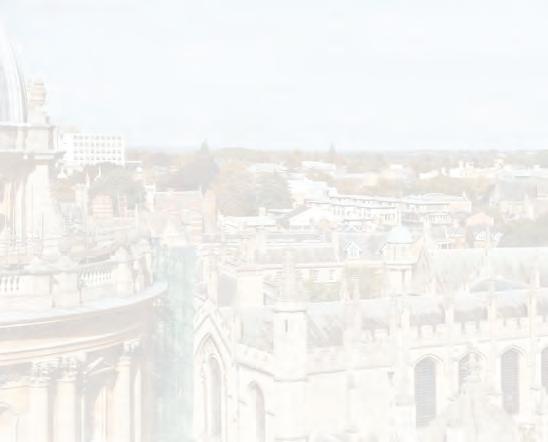

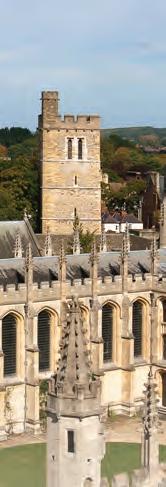

- Stratford-upon-Avon
- New Orleans – the city of music and carnivals



- cycling in New Orleans
b. practise:
- the present simple and continuous tenses






















- the present perfect tense

- making nouns
- prepositions after verbs
- phrasal verbs with get
- asking for and giving directions
Discuss these questions in class. Compare your answers.
1. Why do people like to live in cities?
2. What makes a city an interesting place to visit?
3. Mention three things that make your home town a good place to live in.
Finish the following sentences.

1. The landmarks of a city are its __________________________________________.
















2. Oxford and Cambridge are famous ______________________________________.

3. The landmarks of the cities in the pictures are: _________________






How much do you know about the cities in the pictures? Tell the class.

UNIT 1
1 2 3 SPEAKING
1A THE CITY OF DREAMING SPIRES T










How much do you know about Oxford? Tick (√) the sentences which you think are true.
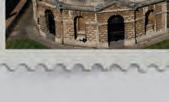
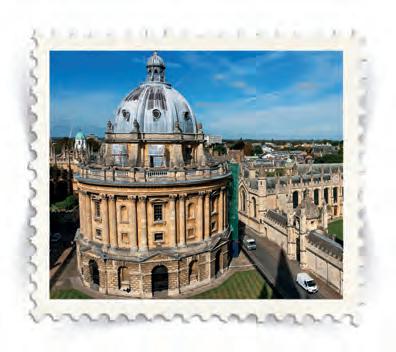

1. Oxford is famous only for its University.

2. The first colleges were opened in the 19th century.
3. There is a river running through the city.


4. Students wear gowns for some occasions.


5. Two universities, Oxford and Cambridge, compete in a boat-race.
6. Shooting films is not allowed on the college grounds.
2




Read the text once and check your answers.











A This bustling cosmopolitan town, known as the ‘City of Dreaming Spires’, is a mixture of ancient and modern. The breathtaking architecture of the medieval buildings that dominate the town and the lovely parks scattered all over the city provide a great source of fascination and suit all ages and tastes.
B Oxford is certainly best known for its famous, prestigious colleges, which date back to the 12th century. Most of the colleges are closed to the public, but some are open during certain hours and certain seasons so that tourists can stroll around the fascinating historical grounds and chapels. From time to time, visitors can see Oxford students wearing their gowns. The largest and most striking college is Christ Church, where many of the scenes in the Harry Potter feature films were shot. The Great Hall itself was replicated at film studios as the grand dining hall at Hogwarts and Harry Potter’s popularity continues to attract people to visit the film’s locations.
C One of the landmarks of the town is a charming pedestrian bridge for the students of Hertford College, which has popularly become known as the ‘Bridge of Sighs’. It is named after the famous bridge in Venice because of its supposed similarity to it. The bridge links the old and new areas of Hertford College so the students don’t get wet and it saves time. There is a false legend saying that many decades ago Hertford College’s students were the heaviest. In order to help them lose weight, the college authorities decided to close off the bridge and the students were forced to take the stairs instead. However, if the bridge is not used, students actually climb fewer stairs than if they use the bridge.
D If someone wants to do something that’s romantic and fun in Oxford, punting could be an appropriate activity. A punt is a shallow wooden boat that is propelled by a long pole. You can also hire someone to do the punting for you, although it is easy and fun to do it yourself. Twice a year, traditional inter-college boat races take place and the famous Oxford-Cambridge boat race is an opportunity for both universities to enjoy the great atmosphere and experience real college spirit.
E With so many choices of country walks, cycling, sailing or punting, there are activities to suit everyone. Everything in the centre of Oxford is within easy reach and a visitor can just walk around and enjoy the atmosphere.
1
track 1 7 T Y READING U N I T 1 A
spire – a tall narrow pointed structure on the top of a roof or tower bustling – very busy and lively, full of people cosmopolitan – made up of people from di erent countries and cultures chapel – a place in a church for private prayer; a small church scatter – spread around an area striking – remarkable, outstanding, attractive replicate – do something again in exactly the same way; reproduce punting – moving a boat by pushing a long pole against the bottom of the river pedestrian bridge – a bridge that people can walk across sigh – let out a deep breath expressing relief or sadness gown – a long cloak worn on formal occasions by university students and sta propel – drive, push, or cause to move
Which paragraph talks about:
1. various activities on the river?
2. why the bridge was closed?
3. the college which is the most prestigious?
4. the architecture of the city?



5. the filming of a famous film for children and adults?
According to the text, which sentences are true and which are false? Justify your opinion.

1. Most of the old buildings are very attractive.
2. Tourists can enter all the colleges.
3. The famous ‘Bridge of Sighs’ in Venice was named after the bridge in Oxford.
4. Oxford offers a lot of activities which are suitable for everyone.
5. If you want to go punting, you have to hire somebody to do it for you.
DID YOU KNOW?
Oxford University is an association of thirty-five colleges. About half of Britain’s Prime Ministers were educated at Oxford. For centuries teaching and studying at Oxford were for the few.

Match the words from the text with their definitions. A B
1. feature film
2. grounds
3. race

4. medieval
a. an area of land around a building
b. relating or belonging to the Middle Ages


c. likeness, having one or more qualities in common
d. go for a relaxed walk
e. important, impressive, prominent




















f. a full length film
7. prestigious
g. contest, competition

5. similarity
6. stroll
? 3 4 1 8
VOCABULARY
U N I T 1 A
Circle the correct answer. In some cases there is more than one correct answer!
1. Cosmopolitan is most similar in meaning to A worldly B respectable C provincial
2. Bustling is most similar in meaning to A demanding B still C busy


3. The closest opposite to shallow is A low B deep C small










4. The closest opposite to scatter is A collect B spread out C break up
5. Grand is most similar in meaning to A impressive B ordinary C modest
6. The closest opposite to link is A connect B separate C bring together

SPEAKING

Add the correct preposition that follows the verbs in the box. Choose from: around, from, on, for and after.
name ... apologize … stroll ... to be known …

prevent … suffer … concentrate … wait …
Complete the sentences with the correct form of a verb + preposition from the box.
1. Rose ______________ a severe headache and has to see a doctor.
2. The town is ______________ its fascinating architecture.


3. It was a very pleasant evening and we decided to ______________ the park.
4. I think you should __________the boy __________ his maternal grandfather.










5. Diana finds it hard to _________________ her studies when she is in love.
1
2
Mention three things that, in your opinion, can appeal to every visitor to Oxford.
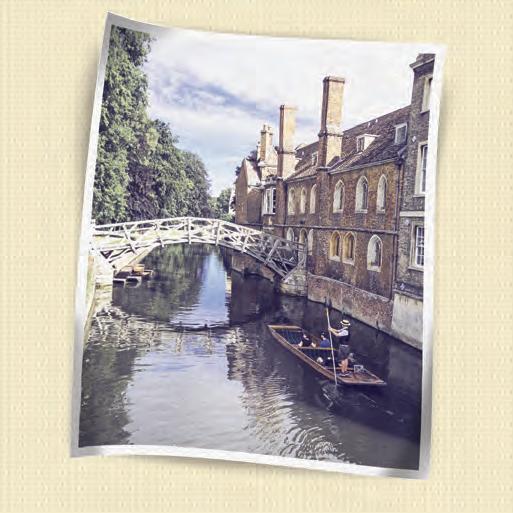
What about you? Which of the following would you like to see or do first?
a. go punting
b. watch a boat race
c. visit the Great Hall
d. walk over the Bridge of Sighs
e. go sightseeing in the colleges which are open to the public
UNIT 1 A
UNIT 1 9 2 1
VERBS WITH PREPOSITIONS 2
f. stroll around the parks
GRAMMAR - TENSE REVIEW

THE PRESENT SIMPLE and CONTINUOUS TENSES

Match the tenses and their uses (a-h). The first one has been done as an example.
The present simple…


The present continuous…




…is used for


















a. general facts.
b. activities in progress at the moment of speaking, or near the moment of speaking.
c. repeated actions or habits.
d. situations that we see as permanent.
e. definite arrangements in the future, as in timetables.
f. something that someone has arranged to do in the near future.
g. situations that we see as temporary.
h. situations which are slowly changing.
Match the examples (1-8) with the explanations (a- h) to show that you understand the use of tenses.
1. He is taking four examinations in June.
2. Water boils at 100 degrees Centigrade.
3. He is working in the garden at the moment.
4. She gives me a lift to work every morning.
5. The Jacksons live in a very nice house in the suburbs.
6. Geoff is staying in his sister’s flat while he’s looking for a place to settle down.
7. The days are getting shorter and colder. It will be winter soon.
8. The football match starts at six o’clock.
Note: The present tenses are also used in conditional sentences type 0 and 1.
E.g. If you click on delete, you lose everything that you have written. If my mother buys me this jacket, I’ll be very happy. I’ll come back later if you’re working now.
Match the two halves of the sentences to get the right meaning.
1. If I go to Cambridge,
2. If you buy a return ticket,
a. it will cost you less.
b. I won’t be able to send you the photos.
3. You will need some more money
4. Don’t disturb him
5. Unless you give me your email address,



ll Unless you gi
FOCUS ON
c. if he is sleeping.
d. if you want to buy all these things.
e. I’ll certainly visit King’s College.
The word unless means the same thing as if ... not. For example: We’ll arrive at ten o’clock unless our flight is late. (We’ll arrive at ten o’clock if our flight isn’t late.)
Unless is often used in conditional sentences.
__a______________
1 2 3 10
U N I T 1 A
Stratford-upon-Avon
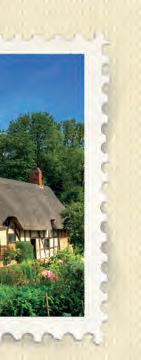
Read Anne’s email to Peter and put the verbs in brackets into the present simple or present continuous tense.



Hi Peter,
I ____________(visit) Stratford-upon-Avon for a relaxing weekend. As you know, this picturesque town is the birthplace of the world’s greatest playwright, William Shakespeare. I’ve read a few things about the town in a brochure. I ___________(think) the best way to see as much as Stratford-uponAvon __________(offer) is to use one of the sightseeing hop on hop off bus tours. If I ________ (manage) to get on that bus, it will take me past all the main sights of the town. Besides, I can get off the bus at stops around the city where places of interests __________ (be).

I ______________ (look) forward to walking around the centre of the town and seeing the final resting place of William Shakespeare, Holy Trinity Church. I__________(also plan) to visit the Royal Shakespeare Theatre, which is situated on the bank of the river Avon. This is a ‘one-room’ theatre, which ___________(allow) the actors and the audience to share the same space, as they did in Shakespeare’s time. Here the Royal Shakespeare Company _____________(perform) Shakespeare’s plays all year round. Tonight they __________(perform) Othello. And finally, I’m going to do some shopping. I ____________(not/want) to come back empty-handed!
Love, Anne






PHRASAL VERBS with GET
Study the use of the phrasal verbs with GET and do the exercise.

1. get along/on have a good relationship with





1. I was surprised how well my new girlfriend and my sister got along/on.
2. get on
3. get off enter a bus/train leave a bus/train
4. get away with escape the consequences of


5. get over recover from an illness/ loss; overcome
6. get down to give one’s attention to something



7. get through succeed in making contact; reach
2. They’ve already got on the bus.
3. Follow them to see where they will get off.
4. He always gets away with cheating on his maths tests.
5. I’ve just got over the flu and now my sister has it.
6. Let’s get down to work.
7. I can’t get through to Tom on this phone.
8. get rid of eliminate, throw away8. We must get rid of our old furniture.

p)y 1 UNIT 1 11 READING and GRAMMAR UNIT 1 A
Complete the sentences with the correct phrasal verbs with get.
1. I hope she’ll _____________ her illness.



2. He couldn’t _____________ his crime because the police found a witness.
3. It’s time to ________________business and finish it.

4. He didn’t _______________ with his boss and finally decided to leave the company.

5. Why do I always _____________to the wrong department when I phone Jim?








6. She wants to _______________all the clothes she can’t wear any more.

WRITING
Go to an Internet site or look through books to find out the answers to the following questions.
1. When and where was Shakespeare born?
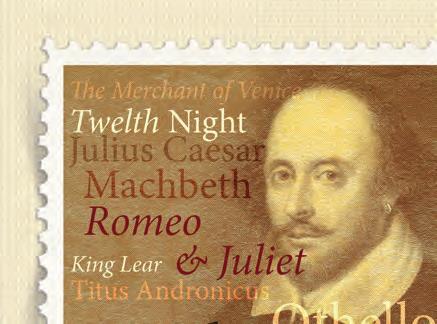
2. What did he write?




3. Name a few of his plays.
4. Where did he live while he was writing?








5. Where were Shakespeare’s plays performed in his time? What did the theatres look like then?
6. Where did he die?
Using the answers to these questions, write a short biography of William Shakespeare. You may add other details about his life and work.


DID YOU KNOW?
There are many expressions in modern English which have come from Shakespeare’s plays. Discuss the following quotations.
All the world’s a stage,
And all the men and women merely players: They have their exits and their entrances; And one man in his time plays many parts, His acts being seven ages.
(As You Like It)
But love is blind, and lovers cannot see.
(The Merchant of Venice)
Neither a borrower nor a lender be. (Hamlet)

All’s well that ends well. (All’s Well That Ends Well)
Better three hours too soon than a minute too late.
(Merry Wives of Windsor)










The Globe Theatre celebrated its 400th anniversary in 1999.
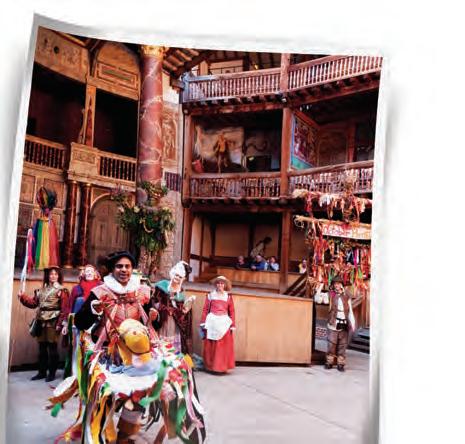

?
2 UNIT 1 12
Glo
UNIT 1 A
1B NEW ORLEANS THE CITY OF MUSIC AND CARNIVALS N T READING





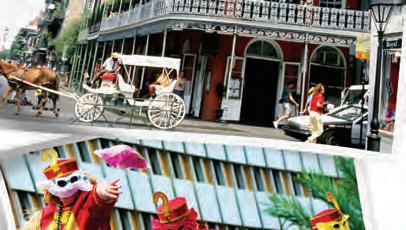


















Read the text and do the exercises which follow.






















New Orleans is one of the top ten most visited cities in the United States. The city is located on the east and west banks of the Mississippi River. In 2005, it was struck by deadly Hurricane Katrina, which caused some of the worst damage in the country’s history. More than 1,500 people lost their lives and hundreds of people were left without homes, jobs and social security.

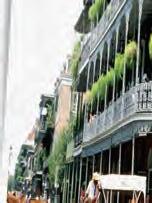
New Orleans is named after the city Orleans in France and is well known for its French architecture, as well as its multilingual heritage. It is also famous for its annual celebrations and music festivals. Despite hurricanes, floods and wars in the past, the city has always celebrated Mardi Gras, the ‘greatest free party on Earth’, and the Jazz Festival. More than 4 million people from around the world come to New Orleans each year to take part in the Mardi Gras Carnival. It has traditionally been part of the winter social season, a season of parades and masquerade balls. The main celebration is Mardi Gras Day, which means Fat Tuesday in French, and Mardi Gras Parade clubs play an important role in the celebrations. Each of them has a unique history and theme. Some have been around for decades, while others have been in existence for just a few years. They choose a king or queen for the parade and organize balls, dancers, bands and floats. The parade processions consist of decorated floats which are usually pulled by trucks. People riding on the floats wear masks and costumes for the entire parade and they throw inexpensive colourful beads and toys into the crowds. The beads are one of the most attractive symbols of the carnival and represent good luck and the spirit of Mardi Gras. The Carnival cannot be imagined without jazz bands because New Orleans is also a significant centre of music. The Jazz Festival is one of the largest music festivals in the USA, with crowds of people coming to experience music, arts and crafts. Despite the name, it promotes not only jazz, but a large variety of music, including both native Louisiana music and international artists.
heritage – tradition, all features of life that have been passed on from one generation to another oat – a lorry on which people in special costumes are carried in a festival procession bead – a small coloured glass, plastic, or wooden ball, with a hole in the middle, put together on a piece of string crafts – objects made by the skilful use of the hands

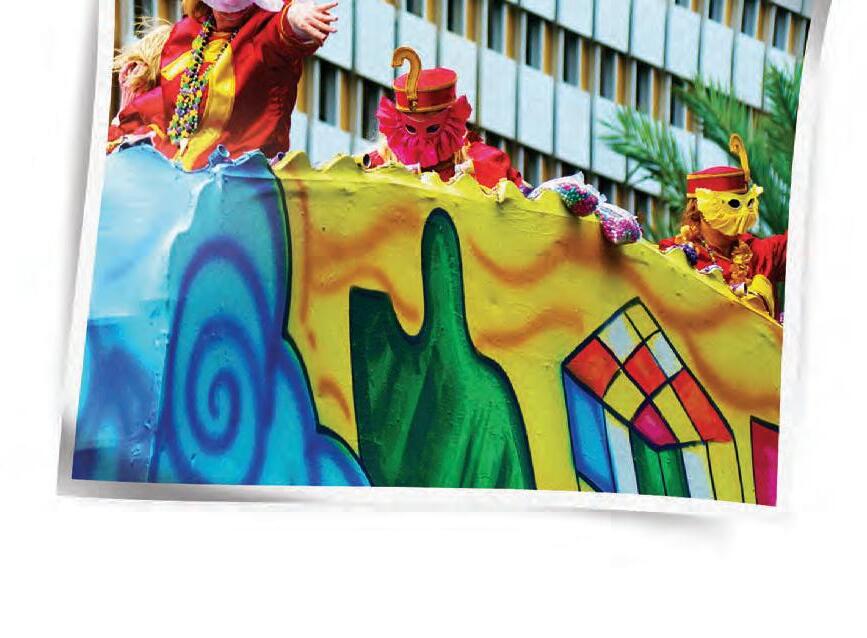

13
track 2 D e ks U N I T 1 B
Answer the following questions.
1. Where is the city of New Orleans situated?
2. What damage did the people of New Orleans suffer during the hurricane?
3. Did hurricanes prevent people from organizing festivals and celebrations?
4. Which two cultures mixed together while the city developed?
5. What role do the Mardi Gras Parade clubs play in organizing the celebrations?
6. How are float riders dressed?
7. What do they throw from the floats?
8. Why do people come to New Orleans at the time of the Jazz Festival?
Read these sentences from the text and underline the correct alternative.
1. After hurricane Katrina, Mardi Gras was/wasn’t celebrated again.
2. Mardi Gras takes place in summer/ winter.
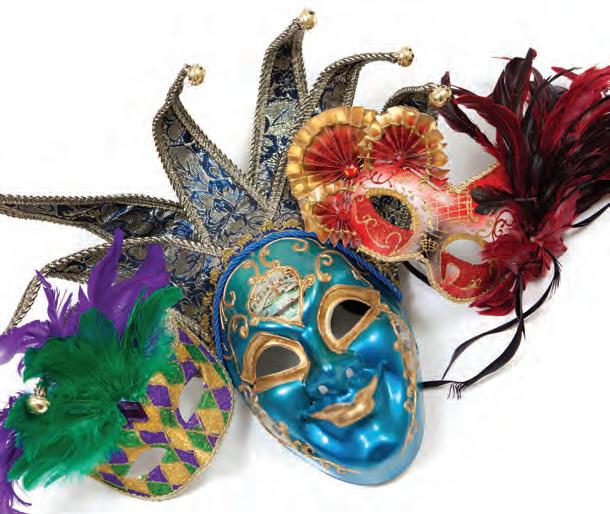
3. The colourful beads they throw are expensive/inexpensive.
4. Jazz bands take part/don’t take part in the Carnival.
5. The Jazz Festival promotes only jazz/a great variety of music.
DID YOU KNOW?
The carnival season starts on January 6 and lasts until Mardi Gras Day, which can fall on any Tuesday between February 3 and March 9 (depending on the date of Easter).
Fat Tuesday is the day before the beginning of Lent, a 40-day season of fasting for many Christians which lasts until Easter. According to old beliefs, people eat and drink excessively on that day.
VOCABULARY
Which highlighted word from the text means:











1. happening once a year or every year? _ _ _ _ _ _
2. the whole of something, including all the details? _ _ _ _ _ _

3. something likely to cause someone’s death, or something very unpleasant? _ _ _ _ _ _

4. a period of ten years? _ _ _ _ _ _








5. physical harm that is caused to something? _ _ _ _ _ _

?
1 2 14
U N I T 1 B
READING and VOCABULARY WORD FORMATION
Complete the sentences with the nouns made from the verbs in capitals.
1. A long ____________ of colourful floats appeared to the excitement of the children. / PROCESS
2. Old customs have been in _____________ for hundreds of years. /EXIST





3. They have cancelled their annual company __________________. / CELEBRATE
4. How many _______________ were there on the floats? /RIDE

5. She apologized for her late _________________. /ARRIVE

6. They needed some more _________________on the subject. /INFORM
7. Liam made a good _____________ when he decided to study medicine. / DECIDE




GRAMMAR
Complete the sentences by using the words in the box.

The origin of jazz
New Orleans is considered to be the ______________ of jazz music. Jazz was created by black Americans who sang and played the music of their _____________land. This music is a combination of a strong ____________and a dance rhythm. The characteristics of jazz music are blue notes and improvisation. Much of the music of New Orleans today____________ its popularity to the early brass marching bands. Many of the best-known musicians had their start in brass marching bands performing at parades and funeral _____________. One of them, Louis Armstrong, became a _____________. He was recognized as the best trumpet _____________ of all time and an outstanding vocalist. Though rock ‘n’ roll was more popular than jazz in the sixties, he hit the _____________ of the chart in 1968 with the song What a Wonderful World, which many _____________have sung ever since.

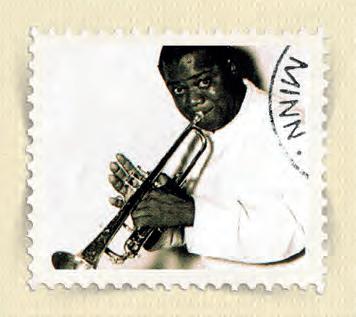
- TENSE REVIEW
THE PRESENT PERFECT TENSE
Match the use of the present perfect with the example sentence. The present perfect is used…
1. to talk about unfinished actions that started in the past and continue to the present.
2. to say that an action happened at an unspecified time before now.

3. to describe experiences.

4. to talk about changes that have happened over a period of time.
5. to list the accomplishments of individuals.
6. when we mention how many times something has happened.





7. for a finished action with a result in the present (focus on the result).

a. The army has attacked that city five times.
b. They’ve missed the bus (so they will be late).
c. I think I have met him once before.
d. You have grown since the last time I saw you.
e. She’s lived in London for three years.
f. He has never travelled by train.
native processions birthplace generations owes player legend top beat
g. Doctors have cured many deadly diseases.
hic i h maany y 1 UNIT 1 15
UNIT 1 B
Make questions asking for the information in bold.
1. His brother has lost his glasses again. ___________________________________________
2. He has ordered three desserts. _________________________________________________
3. My sister has cooked dinner. __________________________________________________
4. He has had that violin for five years. ____________________________________________
Time adverbials and tenses
Put these time adverbials in the correct place in the table. Some of them can go in more than one box.
the present simple _________________________________


















always, so far, ever, never, at the moment, already, tomorrow, usually, for ages, since, for, now, every summer, at present, not yet, just, today, this morning, up to now, recently, currently, occasionally, lately, frequently
the present continuous ______________________________
the present perfect _________________________________


Note:
Always used with the present simple tense means every time. Always used with the present continuous tense means very often and usually describes an annoying habit. Always used with the present perfect tense describes conditions that were true in the past and are still true.
Write sentences in the present perfect tense. Use the adverbs of time: never, yet, already and before.
Example: Tina / run / before / marathon – Tina has never run a marathon before.
1. we / reach / our goal – _______________________________________________________
2. our team / lose / the match – __________________________________________________
3. they / not / discover / the treasure – ____________________________________________


4. Ron / not / talk / about the problem – ___________________________________________
5. the teacher / mark / the tests – ________________________________________________?

FOCUS ON TENSES IN TIME CLAUSES
We do not use the future tense (will) in a time clause to describe future activities. The present simple or present perfect tense is used instead. A time clause is introduced by conjunctions such as after, as soon as, before, till, until, when, whenever, and while
He’ll wait for you until you are back.
You can go out after you have tidied up your room.
ot e teacher / m
2 3 4 16 U N I T 1 B
LISTENING and SPEAKING
Cycling in New Orleans
Pre-listening activity
1. Is cycling popular in your town?
2. Are there bicycle lanes in your town or nearby towns?

3. Do you think that bicycle lanes are useful? Why?/Why not?
track 3
Listen to the text Cycling in New Orleans and answer the following questions.
1. What is the best way of touring Louisiana?
2. Where does the Mississippi River Trail start?
3. Can the citizens of New Orleans use their bikes all year round?
4. Which conditions have helped New Orleans to become a highly-rated city for bicycle transportation?
5. What has the city done for its cyclists?
6. Why are New Orleans’ bicycles considered unique?
What do the following words from the text mean? Choose the best explanations.
1. the trail
a. path
b. train
c. flow
4. adventurous
a. dangerous
b. serious
c. courageous
2. to promote
a. build
b. support
c. protest
5. to post (a sign)
a. make up
b. put up
c. get up
KEY WORD TRANSFORMATIONS
Complete the second sentence so that it has a similar meaning to the first, using the word in bold. Do not change the form of the word in bold.
3. to allow
a. permit
b. forbid
c. prevent
6. mild (climate)
a. cold
b. hot
1. I have never been to this summer resort before. /first It ___________________________________ to this summer resort.
2. I don’t think she will ever recover from the shock of her friend’s death. /get She will ____________________ the shock of her friend’s death.
3. Unless we get the tickets soon, they’ll all be sold out. /if The tickets will all be sold out ________________________ them soon.
4. Why are you interested in taking up a new hobby? /want Why __________________________ up a new hobby?
5. She bought this car three years ago. /for She _____________________________________ years.
6. I haven’t seen Richard’s brother since Thursday. /last The ___________________________________ on Thursday.

7. What is the pronunciation of this word? /you How ____________________________ this word?

























e folllo l wi w ng n queestions n .
1 2 3 UNIT 1 17
c. not extreme UNIT 1 B
ASKING FOR OR GIVING DIRECTIONS
The following are some of the phrases used for asking for and giving directions.
ASKING FOR DIRECTIONS
How can I get to . . . from here?
Can you show me the way to...?
Can you tell me how to get to . . . ?
What’s the best way to get to . . . ? Where is . . . ?
GIVING DIRECTIONS
Go straight on!
Turn left/right! Take the first turning on the left/right! The ... is beside/in front of/next to the... Go past the theatre/school!
Work in pairs. Take turns to ask for directions and give directions from the place where your school is located to…
a. a well-known place where young people like to hang out.
b. two landmarks in your town.
USEFUL EXPRESSIONS
Complete the sentences with the expressions from the box.
1. A: ‘Did you call Roger and Ann to wish them a happy anniversary?’


B: ‘Oh no! ____________________.’


2. Don’t let anyone spoil this chance of success for you. _____________!




3. We’re going camping this weekend, _________________.
4. If you think you failed the test because it was hard, you are __________________.











5. My neighbours were living happily here when ______________ they decided to move to the city.


6. Diana’s salary is so low that she finds it hard to ______________.
Which of the expressions means the following:
1. take action on it?
2. whatever the weather?
3. happening unexpectedly?


4. forget about something?
5. to have money only for basic needs?
6. wrong?
go for it it totally slipped my mind out of the blue rain or shine barking up the wrong tree make ends meet
Use the phrases from the box to make new sentences.
COMMUNICATION
1 2 3 18
U N I T 1 B
Complete the sentences by using the words/phrasal verbs from the Key word list in the correct form. (6 points)
ds/phrasal verbs from nts) TEST1
1. ‘Agh! I have my __________ visit to the dentist’s today.’ –‘Well, it’s only once a year.’
2. She dropped the bag and the cookies _____________ all over the floor.
3. They along the beach as they had nothing to do.
4. Local people want to protect their natural and cultural ___________ and encourage tourism.
5. It will take her weeks to _____________ the disappointment.

6. The workers want to work, but can’t find ________________ jobs.
Replace the underlined word in the sentences with the word/ phrasal verb from the Key word list which has the opposite meaning. (4 pts.)
1. Natural disasters and nuclear power plants are a harmless mix.
2. The river was deep, so we were able to get across easily.
3. My suggestion is to keep these old books.
4. The man’s appearance was unimpressive.
Complete these sentences using the correct tense of the verbs in brackets. (6 pts.)
1. This is the first time I (fly)_____________ on a jumbo jet.
2. He sometimes ___________________ (speak) so quickly that nobody ___________________ (understand) him.


3. I (not have) _____________ a proper dinner for weeks.
4. _________________ (he/visit) his parents next weekend?
5. The film _____________ (start) at 8 p.m. Hurry up!
Rewrite the following sentences using the word in bold. (4 pts.)
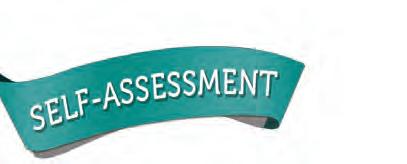
1. The last time they went to the theatre was last September. /not They ________________________________ last September.
2. If he doesn’t take this medicine, he won’t get better. /unless He won’t get better________________________ this medicine.
3. ‘You’ve broken my glasses,’ said the boy to Tom. /accused The boy ________________________________ his glasses.
4. Because of the accident Bob couldn’t take part in the race. / prevented Bob’s accident _______________________________ part in the race.
KEY – page 141
TEST 1














KEY WORD LIST
Verbs float scatter stroll
Nouns damage heritage craft procession spire sigh gown

Adjectives appropriate annual bustling deadly cosmopolitan striking entire medieval prestigious shallow picturesque


Phrases get along/on get on get off get away with get down to get over get through get rid of
20 points
1 2 3 4 19
TELLING STORIES
A STORIES THAT TEACH VALUES B THE SEED OF HONESTY
In this unit, you will
a. read, listen and talk about:
- stories that teach values

- the value of honesty
- Socrates’ reasons against gossiping
b. practise:
- the past simple and past continuous tenses



- the indefinite article





























- the infinitive without to












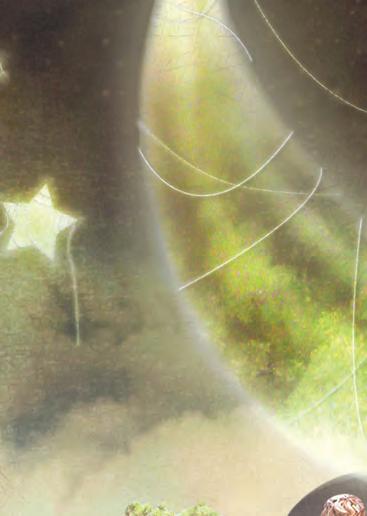

- collocations; making nouns; phrases with ‘down’
- making and accepting apologies
Work in groups. Each group should use one of the pictures to tell the story it relates to. One student starts the story, the other continues, and so on.
Mention:



the main characters of the story.




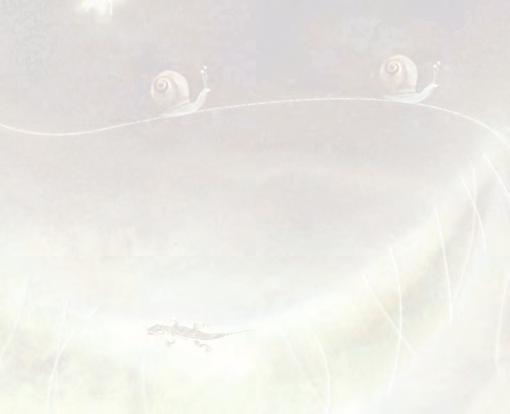

what they do.
how the story develops.
what happens at the end of the story.
what message the story has.
UNIT 2
LEAD-IN
2A STORIES THAT TEACH VALUES
Read the text on the right and answer the following questions.





1. Why do these kinds of stories inspire and teach?
2. Which values are most often emphasized in these stories?

















3. Do you know what the two stories mentioned in the text are about?








There are many types of stories that have a simple ‘moral’ for the reader: fables, myths, fairy tales and so on. These stories teach, whether the storyteller intends to or not. The fable called The Tortoise and the Hare teaches people that they will achieve a lot by taking slow steps. The Boy Who Cried Wolf warned us of the dangers of dishonesty. Through reading, we can learn about values that are truly important, such as honesty, sincerity, tolerance, generosity, forgiveness, gratitude, and self-discipline. Young people in particular need examples of what is right and wrong and books serve to illustrate some easily recognizable human characteristics. Stories show the consequences of bad behaviour and the benefits of good behaviour. They spark the imagination, leave lasting impressions, inspire and teach.
imagination, leave lasting impressions, inspire and teach

Not satisfied with his son’s behaviour, a wealthy man requested an old wise man help his son change his bad habits. The old man thought for a while about how to make the boy improve his manners. Eventually, he had an idea. He took the boy for a walk. While they were strolling through a garden, he asked the boy to pull up a tiny plant growing there.
The youngster held the plant between his thumb and forefinger and pulled it out. The old man then asked him to pull up another, slightly bigger plant. The boy pulled hard and the plant came out, together with its roots. ‘Try that one,’ said the old man pointing to a bush. The boy had to use all his strength, but finally managed to pull it up.
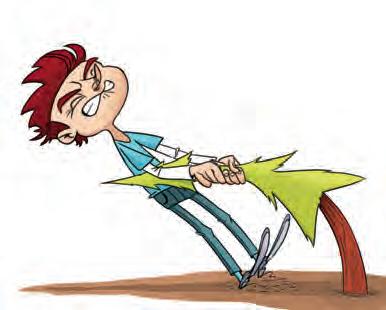
‘And now this one,’ said the old man, indicating a small apple tree. The boy grasped the trunk and tried to pull it up, but it would not move. He was panting with the effort. ‘I can’t. It’s impossible,’ he said.






‘You see, so it is with bad habits,’ said the wise man. ‘When plants are young, it is easy to pull them out, but when they take hold they cannot be uprooted easily. Don’t wait for bad habits to grow in you; drop them while you have control over them or else they will take control of you.’
The boy then realized what the moral of the story was and that he should take the old man’s advice and change his behaviour.
1 track 5
21 HAT Re th FOLLOW UP
READING and SPEAKING UNIT 1 UNIT 2 A
Read the short story Old habits die hard and then discuss the questions.
gratitude – thankfulness, the feeling of being grateful or thankful spark – stimulate (an activity, interest) grasp – to take or hold rmly pant – to breathe rapidly, with short, quick breaths indicate – point out; show to pull up – to pull (a plant and its roots) out of the ground
VOCABULARY
Use the words from the Glossary in the correct form to complete the sentences below.
1. He wants to express his sincere __________ for all your help.
2. The man __________ her by the wrist and shouted.
3. The question __________ a lively discussion and we stayed an hour longer.
4. Somebody ___________ all the flowers from my garden last night.
5. The boy ____________________ when he reached the top of the hill, unable to get his breath back.
PREPOSITIONS
Fill in the correct prepositions from the text and then use the phrases to make sentences.
1. consequence _______
2. benefit _______
3. based __________
4. point______

5. stroll________


6. grateful ________
Answer the following questions.
1. What kind of request did the wealthy man have?
2. Why did the old man take the boy for a walk?
3. How did the boy’s attempts to pull up the plants serve the old man’s purpose?
4. What did the boy decide to do?
What about you? Do you have any bad habits which have lasted too long?
Find a word in the box which most closely matches one of the pairs of synonyms below. There are two extra words.

effort request slightly tiny lasting point truly sincere
1. ask, demand __________
2. very small, little __________


3. really, surely __________



4. permanent, endless
5. direct, indicate ___________












6. frank, honest ________
2 Fill in the gaps with the correct prepositions. See the Appendix and check your answers.
1. He will never forgive me _________ breaking up with him.
2. He was accused _______stealing a valuable painting.
3. He blamed me ________the theft.
4. They congratulated me ___________ passing my exams.
5. I will never agree ______ any of his proposals.
6. Modern paintings differ _______ earlier paintings in many ways.
7. I succeeded ________ getting to the meeting on time.
8. I am thinking of applying _______ the scholarship.

9. They were suffering ______ shock after the explosion.
10. I strongly disapprove ________your teaching methods.
22
2 3
2
1
U N I T 2 A
PHRASAL VERBS with DOWN
Guess the meanings of the phrasal verbs from the context. Then match the phrasal verbs with their meanings (a-f).
1. The government should do something to bring down oil prices.
2. He has cut down on sugar in his coffee because he wants to lose weight.
3. They pulled down the old restaurant to build a new one.
4. Calm down! There’s no point worrying about it now.
5. He really let me down. I won’t forgive him.
6. My car broke down on the motorway yesterday.
a. destroy; demolish
b. stop feeling upset/ excited
c. disappoint somebody
d. stop working (machine)
e. make something cheaper/less
f. consume less
Complete the following sentences using the phrasal verbs with ‘down’.
1. You need to________________ a bit or the stress will give you a headache!
2. They decided to _________________ the old bridge because it was dangerous to cross it.
3. I think we should try to ______________ the level of unemployment.

4. He _____________on coffee and cigarettes, and ate a balanced diet.
5. You mustn’t rely on her – she always _________ people _________.








WORD FORMATION
MAKING NOUNS
Make nouns from the adjectives (1-6) in the table. The first one has been done as an example. Then use the words from the table to make sentences.
AdjectiveNoun
























1. virtuous virtue
2. tolerant

3. generous
4. grateful
5. honest
6. proud
Example: Virtue is thinking and doing what is right.




SPEAKING
Pair work
There is a proverb which says that ‘what you plant now, you will reap later’.
a. Explain the meaning of the proverb.
b. Think of a similar proverb in your language.
Choose a fable/ fairy tale that you know and tell it to the class.
23
1 2
2
1
UNIT 1 UNIT 2 A
GRAMMAR - TENSE REVIEW
THE PAST SIMPLE and PAST CONTINUOUS TENSES












Identify the tense in the sentences (1-10) and match them with their use (a-j).
1. At noon we were still driving through the country.
2. Last year, I travelled to Japan. / Did you have dinner last night?
3. He was talking to a policeman for two hours yesterday.
4. David turned off the light and went to bed.
5. I was studying while she was making dinner.
6. When did he come back from Italy?
7. He used to play the piano.
8. Several people were busily typing and some were talking on the phones.
9. She was always coming home late.
a. a longer action in the past which was interrupted
b. with always or constantly expresses the idea that something is irritating


c. an action which was in progress at a particular moment in the past
d. finished events in the past with no connection to the present

e. two actions happening at the same time
f. to express a long action
g. a sequence of completed past actions
h. questions beginning with when
i. to describe past habits
j. background information, to give atmosphere to a story Complete the fable with the correct past form of the verbs in brackets.
10. I was taking a bath when the telephone rang.


The bear and the two travellers
by Aesop



Two men ________________ (travel) together when a bear suddenly _______________ (appear) in their path. One of them, in order to save himself, _______________ (climb) quickly up into a tree, and _____________(hide) in the branches. The other _______________ (fall) flat on the ground. He _____________ (lie) motionlessly when the Bear came up and smelt him all over. He_______________ (hold) his breath and pretended to be dead as much as he could for it is said that bears won’t touch a dead body. As soon as the Bear had left him, the other traveller _____________ (come) down from the tree and asked: ‘What _______________ (the Bear /whisper) in your ear?’ His friend replied: ‘He ____________ (give) me this advice: Never travel with a friend who deserts you at the approach of danger.’ Moral of the fable: Misfortune tests the sincerity of friends.
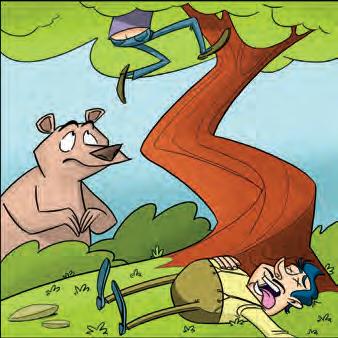
24
2 1
UNIT 1 UNIT 2 A
Choose which tense (the past simple or continuous) fits better.
1. I ________ – I didn’t hear you come in.

a. was sleeping
b. slept
2. I ________ to see her twice, but she wasn’t at home.
a. was coming
b. came
3. What ________? I was watching TV.

a. did you do
b. were you doing
4. Did you talk to your boss?
Yes, I ________ to her yesterday.
a. was talking
b. talked
5. How long ________ the flu?
a. did you have
b. were you having
6. ________ a good time in Paris? Yes, it was wonderful!
a. Were you having
b. Did you have
7. I ________ when the waitress took my plate.
a. still ate
b. was still eating
THE USE OF ARTICLES THE INDEFINITE ARTICLE
We use the indefinite article, a/an, with countable nouns when the listener/reader does not know exactly which one we are referring to.
E.g. The police are searching for a 14-year-old girl.
The indefinite article is also used:




- to refer to something mentioned for the first time
- with names of jobs
- with nationalities in singular and religions
- with a noun complement



- to refer to an example of a class of things
- after the words ‘what’ and ‘such’ with nouns in the singular
- in certain expressions of quantity: a lot of, a great deal of, a great many, a couple, a dozen, a hundred




Note:
There is a flag on their house. He wants to be a mechanic.
John is an Irishman/a Catholic She is a good student.
A crocodile is a dangerous animal. What a nice day! / She’s such a clever girl. There is a great deal of money in that business.
The indefinite article is also used in a number of phrases: It’s a pity that … / It’s a shame … / as a rule … / to be in a hurry… / to take an interest in... / to have a headache/a cold/a pain/a cough/a sore throat / to have a chance/an opportunity to ... We do not use an indefinite article with plural nouns and uncountable nouns: She was wearing blue shoes. (= plural noun) She has short blonde hair. (= uncountable noun)
25
3
U N I T 2 A
PRACTICE
Add the indefinite article where necessary.
1. He said he was _____ employee at _____ shop in town.
2. She’s staying at _____ hotel in _____ small town in Colorado.



3. I’m on _____ diet. No _____ sugar for me!
4. She’s sent me _____ postcard from Italy. She says they are having such ____ nice weather.
5. He wants _____ bottle of _____ water.
6. He bought _____ dozen roses for his wife.
7. I think_____ pizza is bad for your health.
8. Don’t you know that _____ cookies contain _____ lot of sugar?










9. I ate at _____ Chinese restaurant. The restaurant was very good.
10. What _____ pity I can’t stay! I have had such ____ busy day.











FOCUS ON THE INFINITIVE WITHOUT TO






The infinitive without TO is used: after auxiliaries/modals (can/may/will/ should, etc.) He can run very fast. / Diana will come back soon. after make and let He wanted to make the boy improve his manners. / Sandy let her child go out alone.
after verbs of perception + object (to say that the action is complete): feel, hear, see, watch, notice They saw him climb up onto the roof. / Mandy noticed the boy steal an apple.
Note: After these verbs, the –ing form can also be used if the focus is on an action in progress. E.g. We could smell something burning in the kitchen. after the following expressions: had better – You had better clean up your room. would rather – Susan would rather study for her exam tomorrow. would sooner – I would sooner read a book than watch this film.
Note: In the passive voice, we use make with the infinitive with ‘to’ and be allowed to instead of let E.g. He was made to go. / She was allowed to go.
26
UNIT 1 UNIT 2 A
2B THE SEED OF HONESTY T
READING
The following sentences have been removed from the story. Read the text and decide in which numbered gap each sentence should go. There is one extra sentence.

A. Jim couldn’t believe it.
B. However, he didn’t say anything to his colleagues.
C. Jim then told him the truth.
D. He was eager to tell them.
E. I have decided to choose one of you.
A successful businessman and the Chief Executive Officer (CEO) of a big firm, Mr Smith was growing old and he knew it was time to retire. One day, he called all the young executives in his company together and said: ‘It is time for me to step down and choose a successor to take over the business. 1_______’
Seeing that the young executives were astonished, the boss continued. ‘I am going to give each of you a SEED today – one very special SEED. I want you to plant it, water it, and come back here a year from today with what you have grown from the seed. I will then judge the plants that you bring, and the one I choose will be the next manager.’
Jim, a modest but diligent man, got a seed like the others. He went home and excitedly told his wife the story. She helped him get a pot and plant the seed.
Jim kept checking his seed, but nothing ever grew. Six months went by. Others were talking about their plants, but Jim didn’t have a plant and he felt like a failure. 2________
A year finally went by and all the young executives of the company brought their plants to the CEO for inspection. When Jim arrived, he was amazed to see the variety of plants grown by the other executives. Jim put his empty pot on the floor and many of his colleagues laughed! He felt embarrassed, but he didn’t want to lie about what had happened.

executive –someone who manages a department of a company diligent – hard working survey – a) look over carefully or inspect; b) ask people questions in order to nd out their opinions decency – behaviour that is moral and proper

When the CEO arrived, he surveyed the room and greeted his young executives. ‘My, what great plants and flowers you have grown,’ he said.
All of a sudden, the CEO spotted Jim at the back of the room with his empty pot. He asked him what had happened to his seed. 3_________



He looked at Jim and then announced to the young executives: ‘This is your next Chief Executive Officer! His name is Jim!’ 4________
‘How can that be?’ the others exclaimed.



















Then the CEO said: ‘A year ago, I gave everyone in this room a boiled seed; it was not possible for it to grow. However, all of you, except Jim, have brought me plants and flowers. When you found that the seed would not grow, you substituted another seed for the one I had given you. Jim was the only one with the courage, decency and honesty to bring me a pot with my seed in it. Therefore, he is the one who will be the new Chief Executive Officer!’

1
27
VOCABULARY
In groups, discuss the following questions. Compare your answers.

1. Why did the CEO give seeds to his executives?
2. Why did he give them a boiled seed?
3. What did all the executives except Jim do?
4. How did Jim expect the CEO to react after seeing his empty pot?
5. Why did the CEO choose Jim to succeed him?
Match the highlighted words in the text with their explanations.
Word Explanation


1. step downa. someone who has an important position after someone else
2. to substituteb. to salute or welcome in a friendly way
3. to greetc. shy or reserved, humble in appearance


4. to spotd. to retire from a position, resign
5. successore. to replace (someone or something) with another
6. modestf. to notice or detect

Use the words from exercise 1 and the Glossary in their correct form to complete these sentences.
1. You can use sunflower oil as a _________________ for olive oil, but it doesn’t taste as good.
2. He hurried to _________________ his guests.
3. We suddenly _________________ another boat about a kilometre away.
4. The boss appointed me to be his _________________.



5. She’s got a drawer full of expensive stuff, but she’s too ________________ to wear it.
6. If someone ________________, they resign from an important job or position.
7. He wanted to ___________ their work, but they said it was a secret.
8. Her brother isn’t so _____________ and we don’t expect much of him.
COLLOCATIONS

There are words which typically ‘go together’, as in ‘perform a task’, ‘make a suggestion’ and ‘do one’s homework’.
Choose a word from the list below to make a collocation with the words/phrases given (1-5). Then make sentences using some of the collocations. The first one has been done for you. survey / successor / announce / judge /effort
E.g. A survey carried out last year found 80% of the public in favour of the change. Their firm carries out a similar survey every year for a wide variety of purposes.
1. to carry out/conduct a survey


2. to make an ______________to do something

3. to _______________ an engagement /news

4. to find/appoint/choose a _____________


















5. to ____________ someone’s age /the performance /the impact

28
3 2 1 2
UNIT 1 UNIT 2 B
Find the word in the text which has a similar meaning to the words below. The first one has been done as an example.






1. hard-working, studious diligent
2. surprised, amazed ___________

3. not successful, a fiasco ____________

GRAMMAR - TENSE REVIEW
4. uncomfortable, ashamed ___________

5. sincerity, truthfulness ______________
6. make known, read out ______________





THE PRESENT PERFECT and PAST SIMPLE TENSES
What’s the difference?
The present perfect simple
The past simple Unfinished actions that started in the past and continue to the present:
I’ve had this car for ten years (and I still have it).
A finished action in someone’s life (time is not mentioned); life experience: My brother has been to America three times.
A finished action with a result in the present:
I’ve lost my wallet! (The result is that I can’t pay the bill)
Note:
Finished actions: I had this car for ten years (but I sold it yesterday).
A finished action in someone’s life (when the person is dead): My great-grandmother went to America three times.
A finished action with no result in the present: I lost my wallet yesterday. Actually, I forgot it at a shop! (But I’ve found it today).
We CAN’T use the present perfect with adverbs denoting a finished time: yesterday, ... ago, in 1990, the other day, last week/year, etc.
PRACTICE
1. we / reach / our goal _________________________________________________ 2. our team / lose / the match _____________________________________________ 3. she / visit / Rome ____________________________________________________ 4. they / not / discover / the treasure
5. Sheila / not / talk / about the problem
Make sentences using the words below in either the present perfect or past simple tense. Add any other words that you need. Choose adverbs of time from the box, depending on the tense you use. so far last night already yet during since never the other day
6. tourists / find / shelter / the storm
8. how many books / Bob / read _________________________________________ ?


29
4
1
________________________________________
____________________________________
______________________________________
7. many things / change / village __________________________________________
U N I T 2 B
Put the verbs in brackets into the correct present or past tense. (The present simple/ continuous, present perfect, past simple/continuous)
1. Last week I (be) ________________very busy and I (have/not) ________________the time to do a lot of housework.












2. On Monday I (do) ________________three hours overtime and (come) ________________home very late in the evening.
3. I (be) ________________on a business trip from Tuesday to Thursday.

4. On Friday I (go) ________________to a friend’s birthday party and at the weekend I (visit) ________________my grandparents.







5. Tomorrow some friends are coming over. I (see/not) ________________them for ages and they (be/never) ________________to my place before.
6. I (clean/just) ________________my house so I can show them around. Now everything is perfect.
7. Look! There is so much wine left. Nobody (drink) ______________anything.
8. Linda _______________ (stay) with a friend because her parents are on holiday.
9. Francis ______________ (cycle) to work this month.
10. Come on, let’s celebrate! Our song (win) ______________the competition.
LISTENING and SPEAKING
Three filters for gossiping
You are going to listen to a text called Three filters for gossiping. The three key words to understanding the text are truth, goodness and usefulness.
How do you associate them with gossiping? Listen to the text and find out if your guesses were correct.
Listen again and answer the following questions.
1. What did Socrates want to know by asking the first question?
2. What did he learn from the second filter?
3. How did Socrates’ acquaintance answer the third question?


4. Will Socrates’ acquaintance pass the test if he answers yes to the third question?

LINKING WORDS

Class discussion
1. In your opinion, which filter is the most important to pass?
2. Do you think that Socrates was very wise? Why?


3. Do you and your friends gossip a lot?
4. What do you think of gossiping?
5. Can people get hurt when others gossip about them?
Study the linking words in the table and do the exercise. To add a point Also In addition
E.g. He works hard. However, he doesn’t earn much.
30
2 1 2 3
6
track
/ Therefore
a result Consequently Since Due to
summarize Finally
conclusion
conclude
summarize
Similarly Moreover Furthermore Contrasting ideas But / However / Yet Although / Even though Despite (the fact) / In spite of Nevertheless While / Whereas On the other hand To note consequences So
As
To
In
To
To
UNIT 1 UNIT 2 B
Match the two halves.
1. It’s a great city. However,
2. It’s a great city despite
3. He’s very good looking. However,
4. He’s very good looking. Therefore,
5. He went to London. In addition,
a. the bad public transport.
b. accommodation is terribly expensive.
c. he visited Oxford.
d. he has no trouble finding girlfriends.
e. he’s not very intelligent.
Which word or phrase CANNOT complete the sentence?




1. The match was cancelled _______ the rain. A due to B because C because of
2. We were late and __________ we missed the beginning of the show. A consequently B as a result
C nevertheless
WRITING
3. Temperatures are low _______ the sun. A despite B in addition C in spite of




4. ________it wasn’t raining, I took an umbrella. A But B Although C Even though

5. ________ feeling cold, they didn’t turn on the heater.
A However
B Despite
C In spite of
Retell a fable or a short story in 100-120 words, using four paragraphs. When you have finished, check your grammar, spelling and punctuation.
1. Introduction: Write a few sentences to set the scene and introduce the characters.
1. I
2. Describe the main action.
3. Write what happened next.
4. Write a suitable ending to the story.
KEY WORD TRANSFORMATIONS
* Include a few appropriate linking words from the box to connect your ideas and paragraphs. You can also use others, such as: meanwhile for something that was happening at the same time, eventually for the last in a long sequence of events, and finally for the last event of all.
Complete the second sentence so that it has a similar meaning to the first, using the word in bold. Do not change the form of the word in bold.
1. I haven’t been to Oxford for at least ten years. /went The last time _______________________ at least ten years ago.
2. Tina arrived there twelve months ago. /for Tina _________________________________ year.
3. Were you successful in passing the exam? /manage Did _______________________________ the exam?
4. I don’t think you should drink any more coffee. /better You ___________________________ any more coffee.
5. She was not allowed to leave town while the investigation was in progress. /let The police didn’t ______________________ while the investigation was in progress.
6. I don’t really want to go out. /rather I _________________________________ home.












31
1
2
U N I T 2 B
Complete the sentences with the expressions from the box.
1. The name _______________, but I can’t remember his face.




2. I’m feeling a bit _________________ – I think I’ve caught a cold.




3. It’s a _________________ that you’ll get promotion if you do that deal.







4. I couldn’t _________________ the report. It was completely unclear.

5. I am _________________ about whether or not to go to the party.



Which of the expressions means the following:





a) That sounds familiar?
b) I don’t feel too well?
c) It is very likely to happen?
COMMUNICATION
d) I couldn’t understand?
e) I’m unable to decide?
under the weather safe bet rings a bell in two minds make head or tail of

Use the phrases from the box to make new sentences.
MAK
MAKING and ACCEPTING APOLOGIES
Here are some suggestions on how to apologize for something that you have done/haven’t done and how to respond to an apology.

Examples:
A: ‘I must apologize for my late arrival.’ – B: ‘Don’t worry about it.’
Making apologies:
I do / I’d like to / I must apologize for...
I am so / I’m terribly sorry for...
I shouldn’t have...
It’s all my fault... / I’m ashamed of...
It was wrong of me to...
Please forgive me for...
Excuse / Pardon me for ...
Please accept my apologies for...
Accepting apologies:
That’s all right. / Never mind. It doesn’t matter. / That’s OK. Don’t worry about it. / Forget about it. Don’t mention it.

I quite understand. You couldn’t help it. No harm done.
Work in pairs. Take turns to blame your partner a) for being late for the cinema, b) for spilling water over your book, c) for offending a mutual friend.
Make an apology or accept one.
32
1 2 3
USEFUL EXPRESSIONS U N I T 2 B
msofthewords/phrasal




Complete the sentences with the correct forms of the words/phrasal verbs from the Key word list. (6 points)
1. You can ________________ fish for chicken if you don’t like meat.
2. The doctor advised him to _______________ on cigarettes.
3. The new shopping centre will bring lasting _____________ to the community.
4. Novak Djokovic’s success ______________ me to start playing tennis.
5. They _______________ several old office buildings in the town centre.
6. Henry finally ____________ his girlfriend in the crowd.
Complete the table. (4 pts.)
Complete these sentences using the correct tense of the verbs in brackets. (6 pts.)
1. When_______________________ (you/see/last) her at school?
2. I ______________ (already/travel) to London a couple of times.
3. While I _________________ (buy) my ticket, the bus _________ (arrive).
4. Since she __________ (begin) writing, her whole life __________ (change) a lot.


Rewrite the following sentences using the word in bold. (4 pts.)
1. I’m not allowed to stay out later than 11 o’clock. /let My parents __________________________ out later than 11 o’clock.
2. I haven’t seen her for ages. /time The_______________________________ was ages ago.


3. They managed to finish the project on time. /succeeded They __________________________________________on time.

4. He was taken to hospital two weeks ago and he’s still there. /for He______________________________ two weeks.

KEY – page 141
20 points
TEST2
TEST 2













KEY WORD LIST
Verbs spark grasp pant indicate inspire pull up substitute spot greet undergo Nouns gratitude benefit decency effort request successor survey Adjectives lightly tiny lasting diligent sincere modest Phrases break down slow down pull down calm down cut down let down step down

33
decency
noun adjective grateful
benefit sincere
1 2 3 4





































































































































































































































































































































































































































































































































